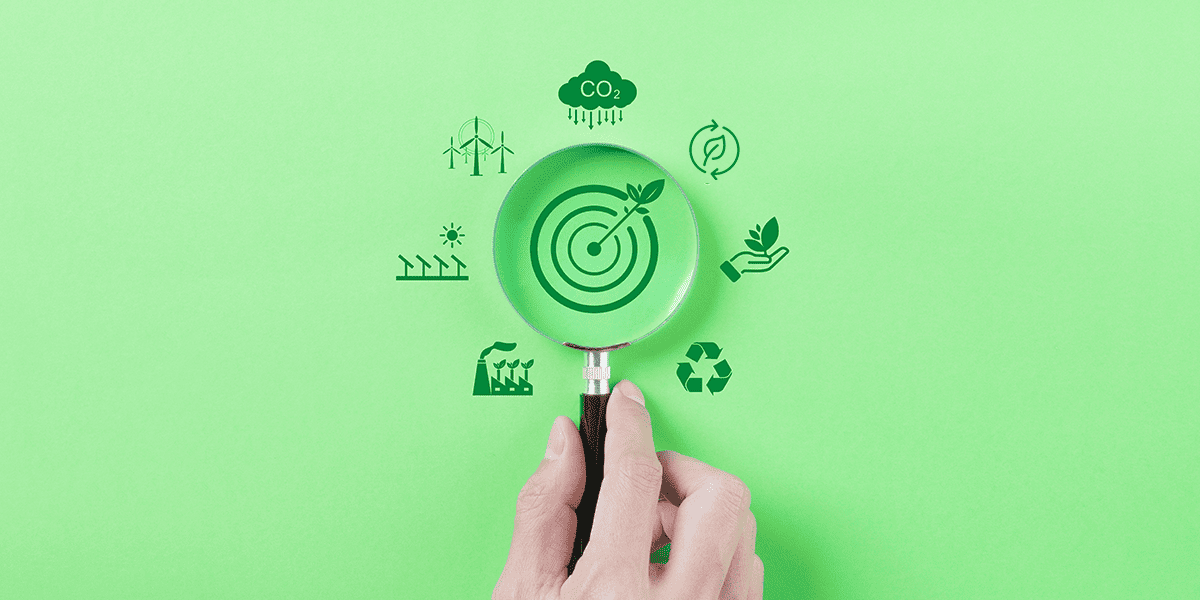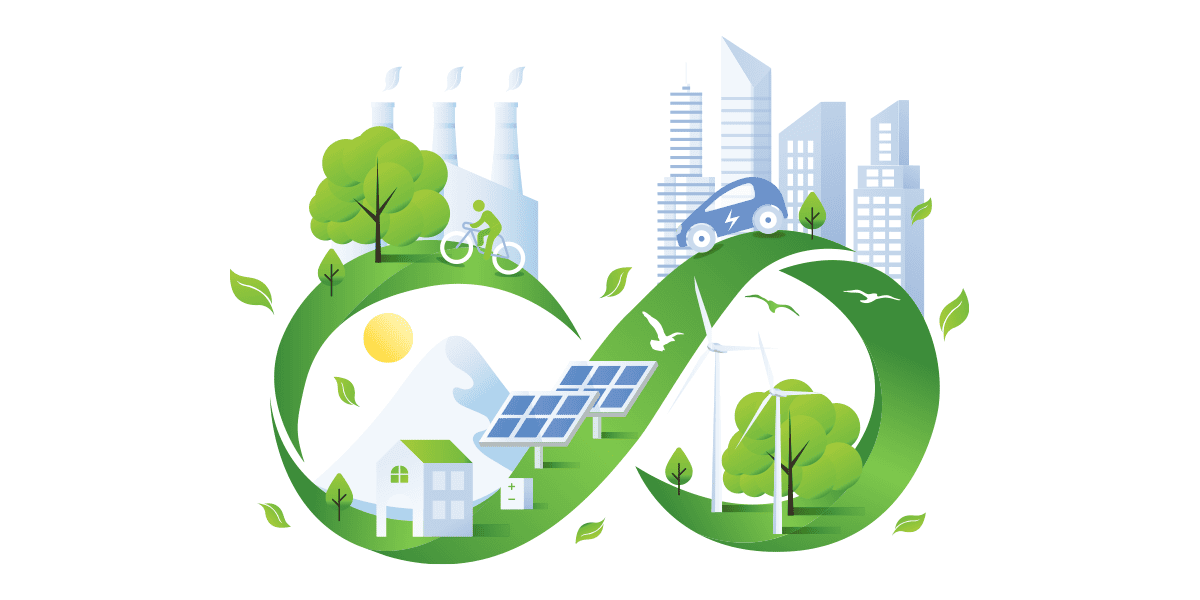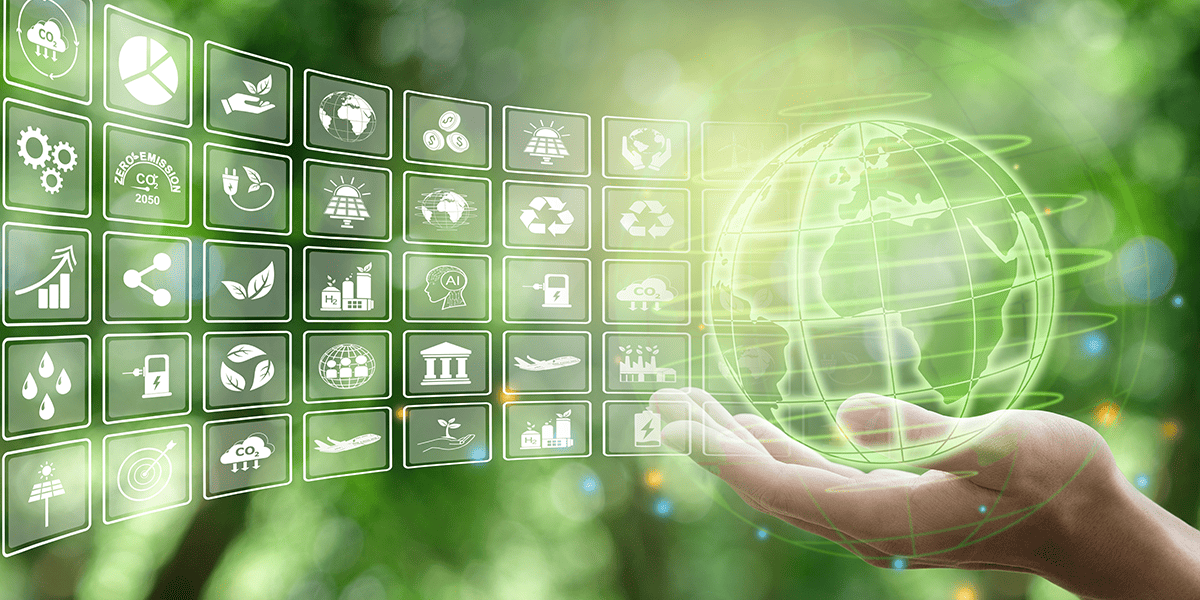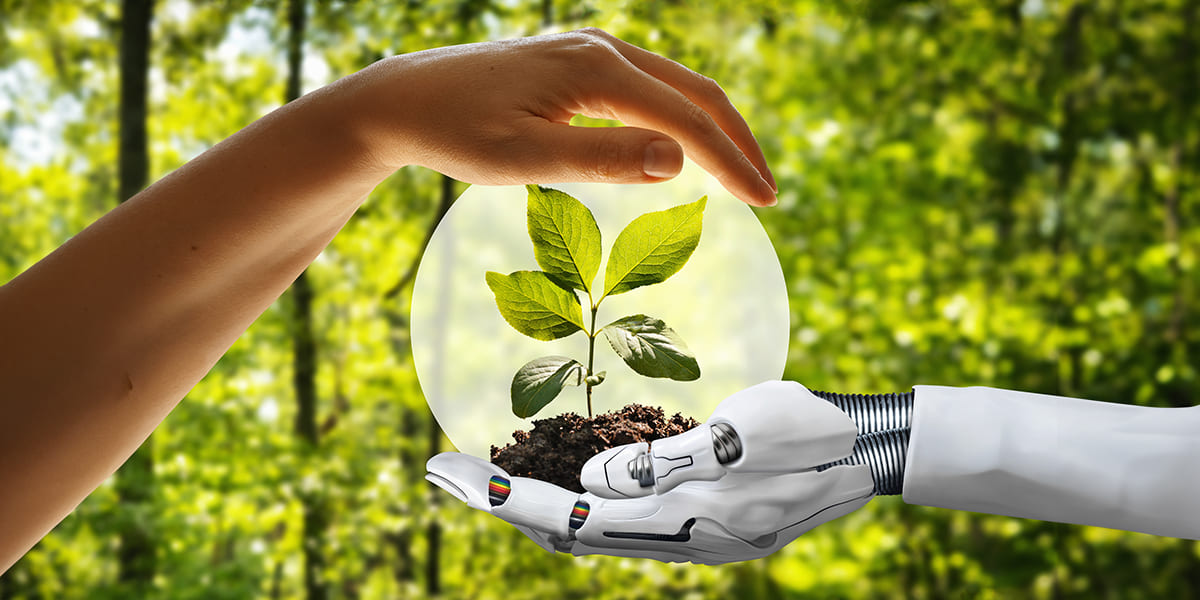Although the terms sustainable energy and renewable energy are often used in similar terms, there are some differences between them.
Renewable energy refers to energy produced with resources that can be continuously obtained from nature. Sources such as solar energy, wind energy, hydroelectric energy, biomass, and geothermal energy are characterized as renewable energy. Under normal conditions, renewable energy sources do not run the risk of depletion.
Sustainable energy, on the other hand, refers to the types of energy that comply with the principle of sustainability both from an environmental and economic point of view. These energy sources are developed to conserve natural resources, reduce environmental impacts, and meet people's energy needs. In other words, sustainable energy includes both energy from renewable sources and methods such as energy efficiency and energy conservation.
To summarize, renewable energy refers to the energy obtained from renewable sources that can be continuously renewed from nature, while sustainable energy includes energy types that comply with the principle of environmental and economic sustainability.
Sustainability and Renewability in the Energy Transition: Differences and Similarities
The concepts of sustainability and renewability in the energy transition are related to each other, but they also have different focuses.
Differences:
Sustainability is broader, including environmental, economic, and social factors. Renewability focuses on a more specific issue, renewable natural resources. Sustainability includes the energy transition, such as energy production and consumption, as well as resource management, environmental impacts, economic sustainability, and societal impacts, whereas renewability focuses only on the efficient reproducibility of energy resources.
Renewable energy sources are not at risk of depletion under normal conditions; sustainable energy sources can be used for a certain period of time and focus on being efficient during that time.
Similarities:
Both sustainability and renewability focus on reducing environmental impacts. Both concepts aim to minimize greenhouse gas emissions and other environmental impacts caused by the use of fossil fuels.
Both sustainability and renewability require planning for meeting energy demand in a long-term and sustainable perspective. In both areas, new technologies are constantly being developed and innovative solutions for the energy transition are being sought.
Sustainable Energy: Economic, Environmental and Social Impacts
Economic Impacts: Sustainable energy provides various economic benefits. The development and investment in projects based on renewable energy sources contribute to job creation and the creation of new green industries. This creates the potential for job creation.
Environmental Impacts: Sustainable energy aims to reduce the carbon footprint. Energy production based on fossil fuels contributes to reducing greenhouse gas emissions and air pollution. In addition, the transition to sustainable energy sources also contributes to the protection of water resources and the protection of nature.
Social Impacts: Sustainable energy affects the overall well-being and quality of life of society. Projects based on renewable energy sources encourage the participation of local communities and give them the opportunity to play an active role in energy production.
Limits of Renewable Energy Sources and Sustainable Alternatives
Since renewable energy sources are derived from nature, it is assumed that they will not run out under natural conditions. However, despite this, there may be disruptions due to some unusual situations.
For example, if you want to harness solar energy, you need to choose a region with good sunlight. In the same way, installing a wind turbine in a region with low wind frequency makes no sense.
For this reason, it is essential to do the necessary research and make the right decisions before starting to utilize renewable energy sources. Finding alternatives that are suitable for the region and the lifestyles of the people in the region is crucial to the success of renewable energy.
Sustainable Energy Policies and Incentives: Global Trends and Examples
Sustainable energy policies and incentives are becoming increasingly important around the world. Countries are implementing various policies and incentives to direct energy production and consumption towards sustainable sources.
For example, the European Union aims to obtain at least 32% of its energy consumption from renewable sources by 2030. The United Kingdom is also realizing its vision to ensure that all of its electricity generation is carbon neutral by 2030.
Incentive programs are also being implemented for the development of such goals and practices. For example, Germany's feed-in tariff system aims to make renewable energy projects economically attractive.
At Borusan Cat, we focus on sustainability in waste management, technology use, and labor force within the framework of the "17 Sustainable Development Goals" set by the United Nations. In this context, we recycle the waste generated in our revision centers and try to reduce the water and energy used. With our Build Exchange Business Model, we buy malfunctioning or damaged equipment and parts from our customers, repair them in our overhaul centers and make them ready for reuse as second-hand parts. Thus, we save on the raw materials and energy required for the reproduction of the part. With our Build Exchange Business Model, we prevented the generation of 6,500 tons of waste in 2022 and ensured the reuse of these materials, and we are confident about increasing this amount.
Müneccim, our proactive artificial intelligence application that predicts the malfunctions that will occur in our customers' machines, ensures that necessary actions are taken before major malfunctions occur and greatly reduces the maintenance and repair costs of the machines. At the same time, it extends the lifetime of the machine, ensuring sustainable use and generating environmental benefits.
With our Müneccim business model, our contribution to sales in Turkey from 2020 to the end of 2022 (with pre-failure detection) was 6.75 million euros, while we prevented the generation of more than 25 tons of waste, and we anticipate that this amount will increase even more. We continue to pursue environmental benefits with our sustainable business models.
We always keep in mind the importance of conscious management of energy resources for our planet. With the projects we produce in line with our company’s purpose statement, "We Create Solutions for a Better World", we are confidently moving forward into the future.











Hello!
As writers for theBClog, we share with you articles that highlight current developments and inspiring ideas in various topics, from sustainability to technology, energy to climate, and innovation to human interest stories.
Enjoy!